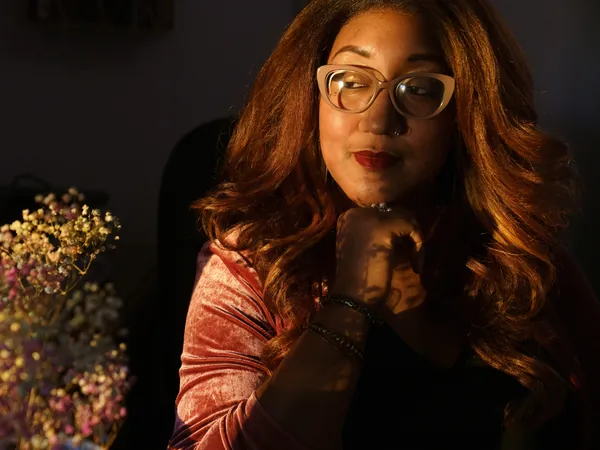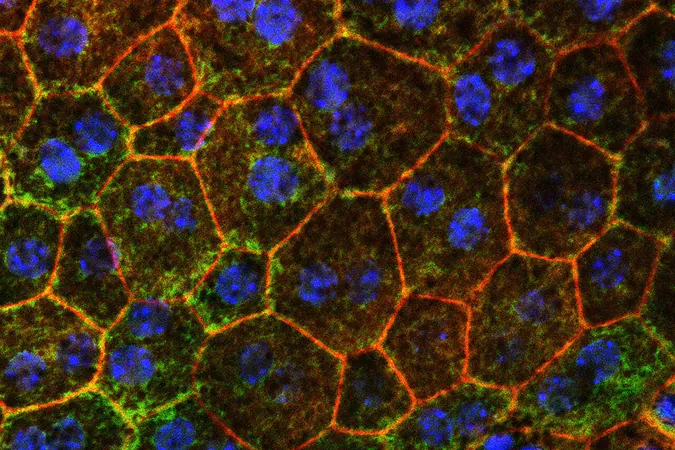
After Cancer: Why Open Conversations About Sexual Health Are Crucial for Survivors
2025-01-19
Author: Jia
Deltra James was living the dream five years ago—a devoted mother of five daughters, happily married, and educating her children at home in Waterbury, Connecticut. However, her life took a drastic turn when she was diagnosed with Stage 4 breast cancer. Within a year, her marriage deteriorated, and she found herself navigating life as a single mother, working and living in her mother’s spare room. The emotional toll was heavy; the grief was palpable.
"I felt an overwhelming anger that I had to start over at such a devastating time," James reflected. But from the ashes of her previous life, she began to emerge—empowered and ready to embrace new experiences, including love and connection. Yet, with that desire came apprehensions about intimacy following her cancer treatments and surgeries.
Many cancer survivors share James's concerns. Sexual side effects from treatments like chemotherapy can affect everything from libido to physical comfort during intimacy—issues frequently brushed aside by healthcare providers. Studies suggest that about 80% of cancer survivors face sexual health challenges post-treatment, yet many feel their needs are overlooked in conversations with their doctors.
Janeane Anderson, a researcher and assistant professor at the University of Tennessee, addresses this critical gap. "Sexual health is one of the greatest unmet needs among cancer survivors. Conversations about dating, relationships, and sexuality are broadly ignored," she states.
As cancer survivorship rates increase—over 18 million Americans today—so does the number of individuals navigating these intimidating waters of dating while managing their altered bodies and identities. Alongside the physical changes, survivors often grapple with emotional complexities, such as how and when to disclose their cancer history to potential partners. Questions arise: "How do I present my new self? Will they accept me as I am?"
James, for instance, chose to conceal her diagnosis from early dates, wanting to appear as a "healthy-presenting" individual. She adapted her appearance, affixing wigs and makeup to mask the effects of her treatment—strategies used by many survivors attempting to reclaim some semblance of their previous selves.
Another survivor, Abigail Glavy, embarked on dating just a month post-double mastectomy. Faced with the stark reality of surgical scars, she courageously took to dating apps. Despite feeling vulnerable, she chose to embrace her journey, saying to herself, "It can’t be scarier than beating cancer." Her experiences underscore the profound internal struggle survivors face: a quest for intimacy faltered by fears of rejection.
Encounters vary widely. While some partners respond with kindness, others fall short, unable to navigate the complexities of dating a survivor. However, for James, a pivotal moment occurred when she disclosed her cancer status to Mike Carbone, a man she had been dating. His positive reaction, expressing relief at understanding her situation, deepened their relationship significantly.
Three years later, their bond remains strong, though discussions about future plans still require transparency about James’s condition, which is chronic and incurable. Their story emphasizes the importance of open communication and empathy in relationships post-cancer.
James’s journey exemplifies a broader narrative among survivors. Despite the shadows of their experiences, the courage to engage in dating and relationships can lead to unexpected joys and renewed confidence. In a society that often shies away from talking about sexual health post-cancer, it’s crucial that physicians address these topics openly and compassionately.
As delays in discussion can lead to loneliness and a feeling of isolation for survivors, addressing the intricacies of sex and intimacy following a cancer diagnosis is essential. For so many, navigating love and relationships isn’t just about physical connection; it’s about reclaiming a part of their lives once overshadowed by illness, proving that even after the darkness of cancer, life can blossom anew.



 Brasil (PT)
Brasil (PT)
 Canada (EN)
Canada (EN)
 Chile (ES)
Chile (ES)
 Česko (CS)
Česko (CS)
 대한민국 (KO)
대한민국 (KO)
 España (ES)
España (ES)
 France (FR)
France (FR)
 Hong Kong (EN)
Hong Kong (EN)
 Italia (IT)
Italia (IT)
 日本 (JA)
日本 (JA)
 Magyarország (HU)
Magyarország (HU)
 Norge (NO)
Norge (NO)
 Polska (PL)
Polska (PL)
 Schweiz (DE)
Schweiz (DE)
 Singapore (EN)
Singapore (EN)
 Sverige (SV)
Sverige (SV)
 Suomi (FI)
Suomi (FI)
 Türkiye (TR)
Türkiye (TR)
 الإمارات العربية المتحدة (AR)
الإمارات العربية المتحدة (AR)